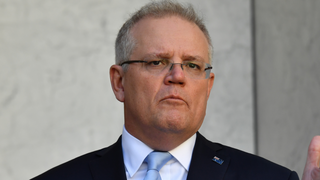Canberra, like Washington, is moving to adopt a more active role in deterring and pushing back against China’s coercive statecraft in the Indo-Pacific. But the two countries are not symmetrically aligned on all aspects of China policy. While the Trump administration has adopted an increasingly confrontational stance that casts the Chinese Communist Party as an ideological rival, Australia has sought to minimise rhetoric that alienates other regional countries and has, instead, focused on practical efforts to bolster collective resilience against Chinese coercion.
Australia’s rejection of China’s illegal maritime claims in the South China Sea should be read as an expression of Canberra’s growing willingness to directly support Southeast Asian partners, not as a case of Australia following America’s lead. Indeed, Australia’s 2020 Defence Strategic Update makes clear that Australia will play a more active role in independently shaping the Indo-Pacific security environment because it is in our direct national interests to bolster a favourable balance of power in the region – and because Australian policymakers recognise that the United States can no longer uphold the regional order by itself. Forging a collective regional strategy is in all of our interests. But for Australia, this won’t be defined in strictly ideological terms.
Forging a collective regional strategy is in all of our interests. But for Australia, this won’t be defined in strictly ideological terms.
Given that Canberra has now comprehensively adopted the Permanent Court of Arbitration’s 2016 ruling on Beijing’s South China Sea claims, Australia should demonstrate its position through actions as well. Conducting freedom-of-navigations operations (FONOPs) within 12 miles of submerged or artificial features is an initiative that Canberra should now pursue. Such operations have an important signalling function and are useful in preventing de facto acceptance of China’s illegal claims, particularly if undertaken in a multinational setting or coordinated with regional partners. But FONOPs are ultimately ephemeral in nature and do little to support Southeast claimants or their maritime rights and interests.
Accordingly, Australia is likely to also step-up its intelligence sharing and provision of direct operational support to Southeast Asian nations on the frontline of Chinese coercion over the coming months. Such measures could include providing more intelligence, surveillance and reconnaissance data on China’s illegal presence and activities in other countries’ exclusive economic zones to help claimants defend their interests in more timely and effective ways; and undertaking coordinated patrols and presence activities with Southeast Asian naval and coastguard vessels in support of fishing ships, hydrocarbon exploration platforms and other commercial vessels, raising the stakes for Beijing should it seek to disrupt or interfere with claimants’ own lawful activities. These initiatives would provide a more tangible contribution to deterrence and defence of the rules-based order in the South China Sea than can be achieved through FONOPs alone.






